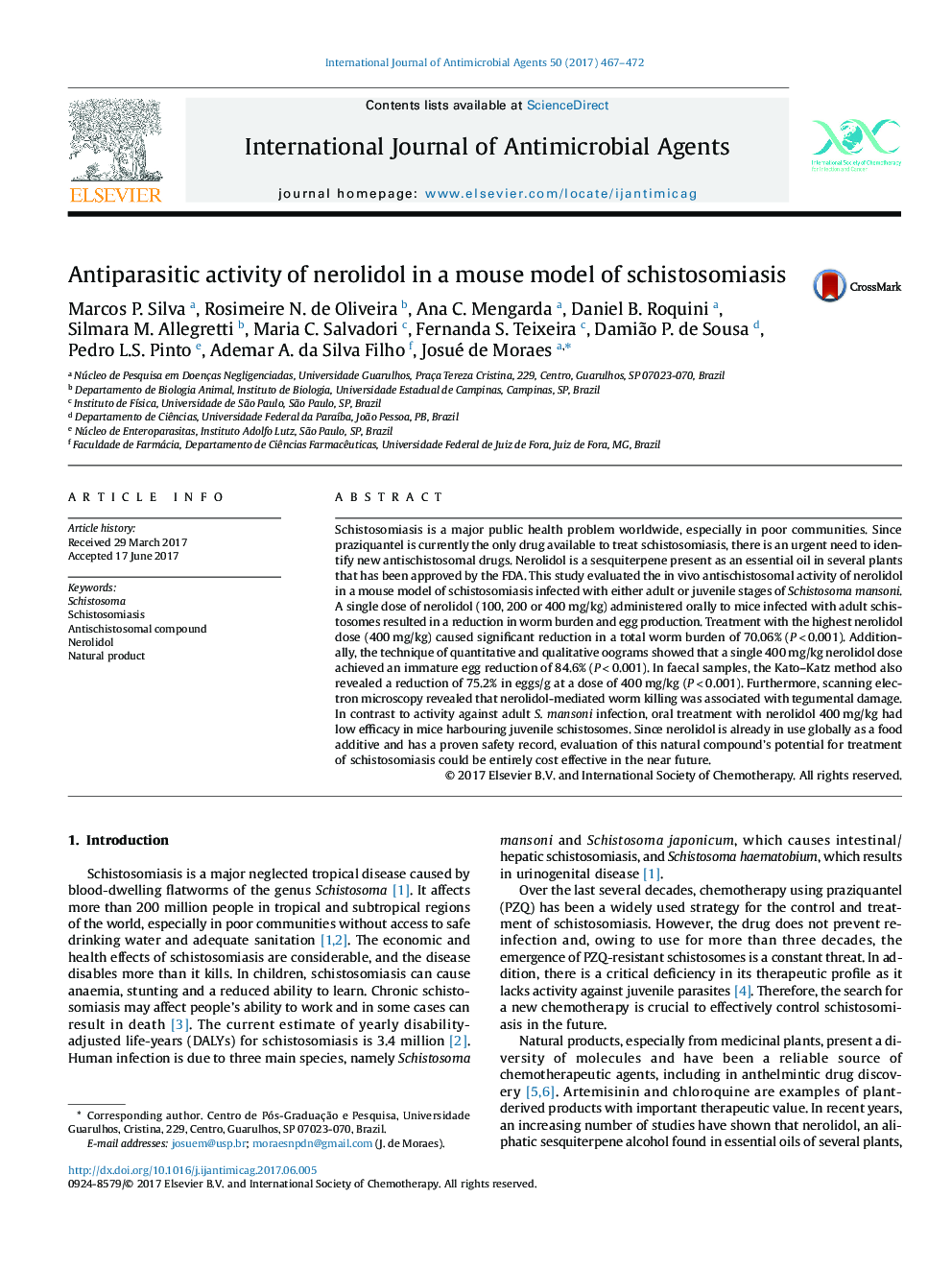| کد مقاله | کد نشریه | سال انتشار | مقاله انگلیسی | نسخه تمام متن |
|---|---|---|---|---|
| 5666806 | 1591737 | 2017 | 6 صفحه PDF | دانلود رایگان |
- Single oral nerolidol dose resulted in reduction of worm burden in a murine schistosomiasis model.
- Oral administration of nerolidol causes reduction in immature eggs and total egg production.
- Tegumental damage of adult worms was observed by microscopy after oral nerolidol treatment.
- Nerolidol, approved by the FDA, is a natural compound with therapeutic potential for the treatment of schistosomiasis.
Schistosomiasis is a major public health problem worldwide, especially in poor communities. Since praziquantel is currently the only drug available to treat schistosomiasis, there is an urgent need to identify new antischistosomal drugs. Nerolidol is a sesquiterpene present as an essential oil in several plants that has been approved by the FDA. This study evaluated the in vivo antischistosomal activity of nerolidol in a mouse model of schistosomiasis infected with either adult or juvenile stages of Schistosoma mansoni. A single dose of nerolidol (100, 200 or 400âmg/kg) administered orally to mice infected with adult schistosomes resulted in a reduction in worm burden and egg production. Treatment with the highest nerolidol dose (400âmg/kg) caused significant reduction in a total worm burden of 70.06% (Pâ<â0.001). Additionally, the technique of quantitative and qualitative oograms showed that a single 400âmg/kg nerolidol dose achieved an immature egg reduction of 84.6% (Pâ<â0.001). In faecal samples, the Kato-Katz method also revealed a reduction of 75.2% in eggs/g at a dose of 400âmg/kg (Pâ<â0.001). Furthermore, scanning electron microscopy revealed that nerolidol-mediated worm killing was associated with tegumental damage. In contrast to activity against adult S. mansoni infection, oral treatment with nerolidol 400âmg/kg had low efficacy in mice harbouring juvenile schistosomes. Since nerolidol is already in use globally as a food additive and has a proven safety record, evaluation of this natural compound's potential for treatment of schistosomiasis could be entirely cost effective in the near future.
Journal: International Journal of Antimicrobial Agents - Volume 50, Issue 3, September 2017, Pages 467-472
